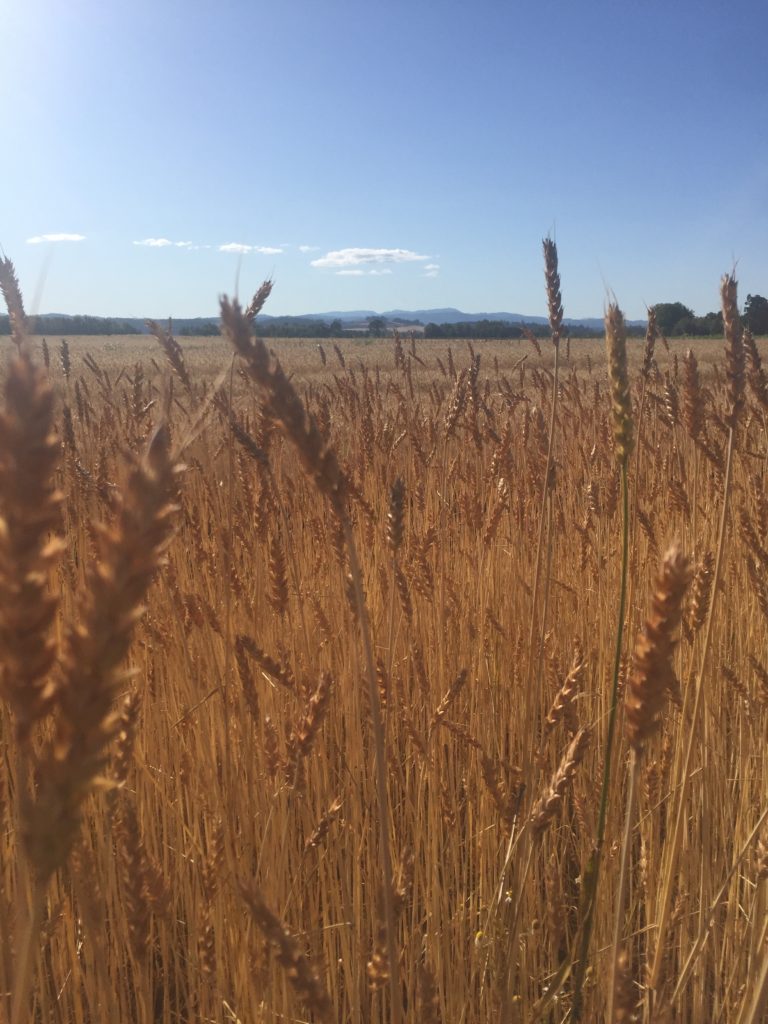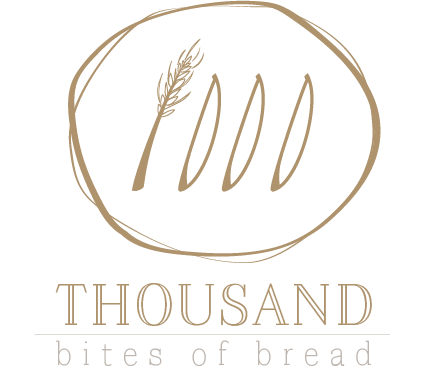
Did you know that I am a folk herbalist? Long before I baked bread, I studied with herbalist Susun Weed as an apprentice back in the late nineties. Everything in my life since has brushed up against that experience, and it’s even my studies with Susun that eventually led me to bread.
What a joy it’s been to integrate plant medicine into my life for the past 20 years. Many people ask me if this means that I don’t believe in modern medicine? Quite the opposite. In fact, I learned from Susun that anything that’s available in the world is one big playground of choice, and I get to have power in how I interact with the world around me. She calls this the Wise Woman Tradition.
What does this have to do with bread?
Well, when I first started baking bread, I knew I wanted it to be nourishing. It was to be sustenance for our bodies, but also for our delight. I knew my bread couldn’t be based on reductive techniques (such as the factory bread with denuded and meagerly enriched flour our culture had come to rely on) or fear-based elimination dieting (such as the gluten-free movement popping up all over the place), but instead on trying to understand the wise ways of my ancestors who made bread for millennia.
Don’t get me wrong, I’m not glorifying the past, just trying to be a good ancestor in my short time here, passing on knowledge that I am privileged enough to be the keeper of.
Well, here’s my confession: I see bread as a kind of everyday medicine, same as bone broth and yogurt and the nourishing herbal infusions I’ve been drinking since my apprenticeship. Food really is medicine. I know this phrase is a little worn out, but I see the quotidian act of choosing and preparing food as a small act of resistance against the idea that medicine is only something in a bottle from a big mega-corporation. Certainly, that is a type of medicine—and I’m glad it exists—but there are a lot of left-out choices between here and there.
One definition of the word ‘medicine’: any practice regarded by savages as having magical efficacy (Webster’s Encyclopedic Unabriged Dictionary).
If there was ever a food choice that had magical efficacy, it’s bread. And I respect the so-called savages that first brought it to us.
So, one thing my mentor Susun Weed taught me was that if I want to get to know a plant, I should spend at least a year with it. So that’s what I did a decade ago; I spent a year with wheat, and pretty soon Demeter grabbed me by the hand and led me down a path lined with cereal grasses.
It’s true that grass seeds speak to the herbalist in me. Call it what you will, but every morning when I eat a slice of toast, I’m feeling the magical efficacy of bread medicine.
Here’s what’s on the menu this month:
Mama Bread
This month’s Mama bread is made with Hollis wheat from Moon Family Farms in Washington. Garrett and Jessica steward their farm that’s been in the family for five generations. They have a thoughtful approach to managing the land, building the soil in their dry environment, and also keeping the price of their wheat affordable. They save the seeds for the Hollis wheat year after year, and it makes wonderful loaves at 100% whole grain that I mill right here at home.
Organic Sandwich Loaves
The sandwich bread this month is made with organic sifted wheat flour from Maine Grains as a nod to my visit to the Kneading Conference in Skowhegan, Maine this past summer. The fact that this flour is sifted after being stone ground makes it a bit lighter, while still containing much of the germ and bran (thus more nutrients) than the typical flours found on grocery store shelves. To these loaves, I’m adding a bit of malted barley flour from Tuality Plains in Forest Grove, Oregon. The barley adds a hint of cereal sweetness and boosts the browning capabilities.
100% Einkorn Loaf
Einkorn is the most ancient wheat that we still cultivate. It’s genetically different than modern wheat because it reflects the time when wheat had a simpler DNA profile. It has a buttery color and a savory flavor with mineral overtones. I’m using grains from Bluebird and milling them at home on my Komo. This bread is a pan loaf and it’s superb as toast dripping with butter and a shaving of parmesan cheese.
Blueberry Cinnamon Spelt Loaves
My good friend Antoinette loves bread with cinnamon. She’s not particular about what kind of dried fruit goes in with the spice, so when I send her loaves, I usually dream up new kinds paired with something like raisins, currents, or cranberries. This month, I have a sac of blueberries from Bow Hill and I decided to give them a try. I’m using Maris Widgeon white wheat from Lonesome Whistle mixed with spelt from Camas Country Mill in these loaves.
To place an order, email me to let me know what you want and what day in the coming week you would prefer to get it. You are always welcome to drop by for espresso & morning toast, or we can work out delivery or pick-up via email. I have a limited amount of each item, so the earlier in the week you let me know, the better your chances of getting what you want. For the more spontaneously-minded types, drop me a line whenever and I’ll let you know what I have on hand. Oh, and if you want to pay for the bread on-line, here is the link. Of course, I’m always open to trade…
Savor your month with savage delight and the kind of gratitude that plant magic brings,

Other news from the world of grain:
-There is a community grain festival coming up in Forest Grove on September 14, 2019. There will be local food vendors, a band, and horsedrawn rides around the farm. It’s a free, fun family event that centers local grain. For information about the event, go here.
-If you like podcasts and bakers, I highly recommend Rise Up! It’s hosted by Mark Dyck, and he’s dedicated to telling the stories of people in the bread world. He’s recently interviewed many of my friends, and even though I know them, I learn something new each time I listen. Very fun!
-Local farmer and flour producer Lonesome Whistle is now making pasta and I’m loving it! Find it on their website or at a local Portland or Eugene farmers market.
-For information about taking my class through AirBnB, go here.
